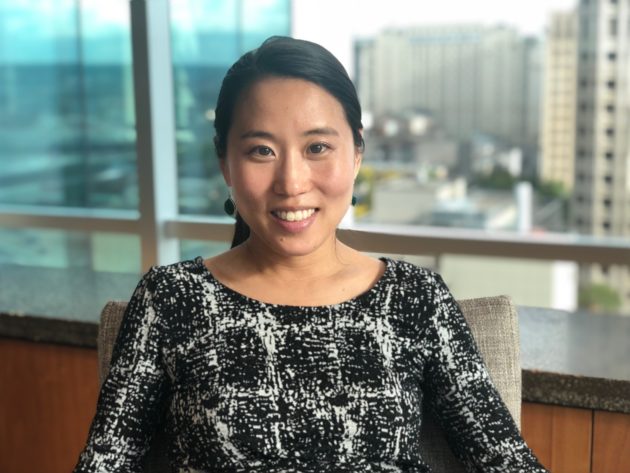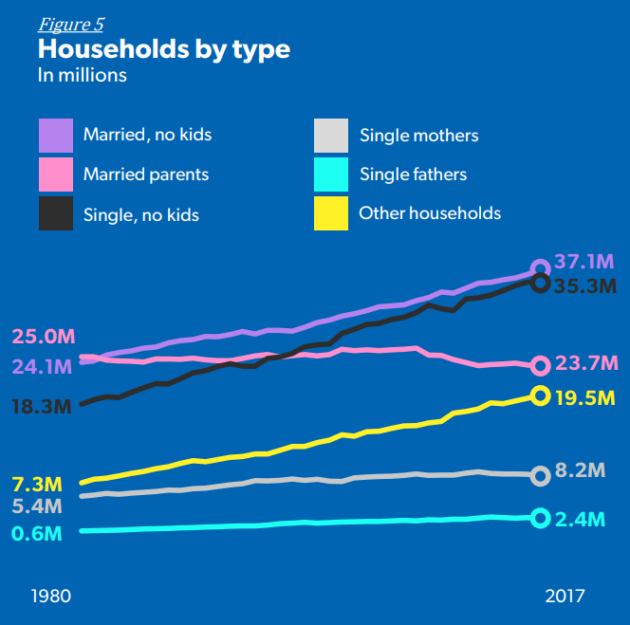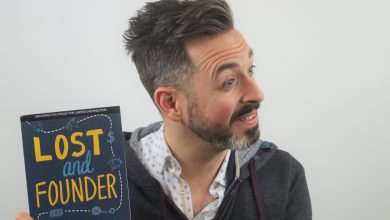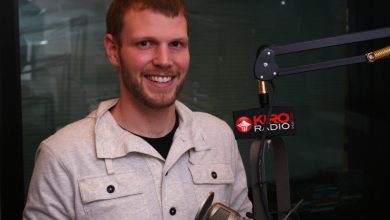Numbers Geek meets ‘Shark Tank’: Why this startup founder turned down Mark Cuban’s $30M deal

Thirty-million dollars. That number will forever be associated with our guest on this week’s Numbers Geek podcast, Arum Kang, co-founder and co-CEO of Coffee Meets Bagel. She turned down a $30 million acquisition offer from Mark Cuban for the online dating company that she founded with her two sisters. It was, at the time, the largest offer in the show’s history.
Introducing ‘Numbers Geek,’ a new podcast from GeekWire and Steve Ballmer’s USAFacts
So what happened after Shark Tank? On this episode of the Numbers Geek, we get the rest of the story from Arum Kang, a Harvard MBA grad and the co-CEO of Coffee Meets Bagel, the online dating company that she founded with her sisters. In a world of swiping right or left, and judging people by appearances, their approach is to focus on quality rather than quantity of connections.
We’ll talk about that mission, and we’ll look at the underlying data in the United States to understand how trends in the country and changes in U.S. household structure are making this quest even more challenging and important.
This is the first of two Shark Tank-themed episodes of Numbers Geek. Later this week, we’ll feature an interview with Jamie Siminoff, the CEO of smart doorbell maker Ring, who walked away from Shark Tank empty handed but later sold the company to Amazon for a reported $1 billion.
Listen to the podcast above, and continue reading for an edited transcript.
Q: A lot of people who watch television may know you from a particularly famous moment on Shark Tank. What does the number $30 million mean to you?
Arum Kang: $30 million means nothing to us. When we got offered that amount, I didn’t have to even think for a second that we would even consider taking that offer because we see so much bigger opportunity in this space, not only monetary wise just given how the market is growing, but also the kinds of impact that we can make. To sell the company at that point would have just been way, way, way too early. We would be just really short selling ourselves.
Do you think that Mark Cuban was serious when he said that? There’s been some debate about whether he was actually going to offer that for the full company, because he was already “out” at that point, to use the Shark Tank term.
AK: I do think he was serious because, you know what, we were on stage for about an hour. Of course, it was edited down to 10 minutes, and yes, initially in the dialogue, he was out, but then essentially he came back inside and back into the deal, and then we were going a lot back and forth. It was very clear to me he’s looked at this industry before. He was a very informed investor. He asked a lot of great questions. Well, I mean, you just never know, but I do think he was serious.

How much did you raise in your latest round?
AK: We just recently raised a $12 million series B round earlier this year.
What was the valuation?
AK: That is a secret. We don’t share that number publicly, but essentially at this point, we’ve raised about 20 million in total.
I know you can’t say the number of the valuation, but can you say whether you feel good, based on the current valuation, having turned down Mark Cuban’s offer?
AK: For sure. I feel very good about the decision we made on the show.
What’s the most important number that you look at day to day in your business?
AK: For every business, there are important key performance indicators that of course every leader has to track. For us, what’s very important is not just the high level number that you hear about a lot, which is what’s the monthly active user, etc. For us, it’s really how many authentic connections are we creating for our customers. We look at two proxies to get to that number. One is what’s the average connections that our average active user is making per day, and also, how many messages are our average active user exchanging every day as well as how many successful couples are we generating per day?
Those are the three important KPIs that we track. We think this is much more important than just looking at monthly active users or some of these vanity metrics like registered users, et cetera.
Are you public with those three numbers at all?
Oh no, we’re not public with those three numbers either, but definitely, the way we look at it is our goal is on average, we want to make sure that our customers are going on about three dates per month through Coffee Meets Bagel. You can do the math backwards. If you want to go on three actual dates, then how many active conversations do you have to have at any given week? Then in order to get to that, how many average connections do we want to generate? We do the math backwards to come up with an ideal picture of a customer experience.
There’s definitely a lot of room for us to improve. This is what I’m actually really excited about. I think, there’s still tons of room to innovate in this space. I think one of the still frustrating points that our single customers have is what online dating essentially did very effectively is increasing the top funnel of choices that people can have, but not necessarily converting that into meaningful conversations. I think we can do a lot better job here.
I understand that you ran into a specific ratio when you were out raising money. Tell me about the number three in that context.
Three is a meaningful in that, at this point, I probably pitched to over hundred investors. No joke, I think that’s the actual number. I’ve pitched to three female [venture capital] partners, which is quite sad to be honest. At the very beginning when I was starting this journey, I was very unconscious of this gender aspect. To me, investors and investor didn’t really see this as an issue. More and more as your bar of having to raise the business metrics you have to deliver increases with subsequent rounds, this was something I became hyper aware.
Definitely being a female entrepreneur, there were a lot of instances where I felt like I was at a disadvantage. When I actually had the opportunity to pitch to these three female investors, the dynamic was definitely different. When you look at our product, it’s very female-oriented. I’m a female founder. The amount of time that it takes for female investors really to understand and get the consumer needs is like this; Ii’s immediate. Whereas for male investors, I have to really take the time to explain. They don’t really resonate with this problem as much, but then you’re always given limited number of time, amount of time to really pitch and convince them to invest in you.
I think this does work at a disadvantage for female founders, especially if your product is female focused. I’m really hoping that number three will eventually change to at least double-digit. I know of course there’s a lot of initiatives now being done both on the venture capital side as well as a founder side to really get that ratio up.
This round, the latest round, I actually specifically went out to raise money from female investors because I really wanted the representation. Prior to this, we didn’t have any female investors represented. Gingerbread Capital, Linnea [Roberts] is the partner. She really bought onto our mission. She also was really able to introduce me to several female angel investors who ended up investing with her, and so I was really happy with that result. Her funds specifically looks for female entrepreneurs, which is great.
Three is also significant to you because you founded Coffee Meets Bagel with your two sisters. It’s a trio. Did you say you’re co-CEOs now?
Yeah. We have three co-founders, and they’re of course my sisters. Soo is my older sister. She’s a designer, so she was the creative force. Dawoon is my twin sister. She had finance and strategy background, and I had product background, so we had very complementary skills. Right now, Dawoon and I are running the company as co-CEOs.
What’s that like to start and run a company with your sisters?
It is a lot of fun, but it’s also a lot of work. At the beginning, I do think it gives you distinctive advantage because the level of trust that you can have with your siblings, it’s just tremendous. One of the most common reasons early stage companies break apart is dynamics among the founders and level of trust, mistrust. In that sense, I think it really allowed us to move fast because we didn’t really ever have to question each other’s motives. However, the disadvantage of course is this gets kind of muddy, and as sisters, we tended to bicker a lot.
As your company grows, that is not something you want to display at the highest level in the management. We actually worked quite a bit with a coach who specializes in family businesses to help us with that dynamic. That helped a lot in terms of just resolving conflicts, how do you separate work and personal, because this becomes very murky and that can be very stressful too. It takes a lot of work, but I think the journey … I mean, totally, it’s worth it. I have so much fun still today with my sisters.
I’m looking at some stats here from USAFacts, our partner on Numbers Geek. It shows that the number of households with single people living alone rose from 23% to 28% from 1980 to 2017. What do you think of that trend, and how does it play into what you do at Coffee Meets Bagel?

AK: Absolutely. I think that generally the trend, especially in developed countries, what’s interesting is people now date far longer, about a decade longer, than we used to until their first marriage. For example, in the U.S., the average age was early 20’s in the ’70’s when they got married. Now, it’s close to early 30s, late 20s, early 30s. To me, actually the positive aspect of this is if you really look at the driver of this lifestyle change, largely, it’s driven by woman becoming financially independent and not feeling this societal pressure to settle down by a certain age anymore.
I think that’s a great thing, but then on the other side of this trend is also especially older demographics, people living alone and being isolated from society, and we as humans, we are wired to connect with others. The way we actually get most fulfillment out of life is through genuine connections with others. I think this epidemic of loneliness is a big issue, which is very ironic because we live in a world where we’re connected more than ever through social media technology, but yet I think a lot of us really feel isolated. This is one of the things that we feel passionate about, that we are addressing almost at a social level, people feeling isolated and alone, that how do we actually get them to feel connected to others.
Of course, finding a genuine partner is one of the best ways to get over this loneliness. This is why I also strongly feel that not only is the online dating industry has become more important because more than ever, there are just sheer number of singles growing, but also because people feel really isolated, and so using technology to really connect them and creating these authentic connection we think is an important mission, social mission that we have.
If you look at the online dating singles market today, this is where I think a lot of people have problems because they are scared to make themselves vulnerable, because what they see commonly is other people ghosting others, other people doing this swiping game, numbers game, not taking things seriously.
Their biggest fear is not being taken seriously by others, and so really getting them to feel comfortable sharing and being a little bit vulnerable, I think, is also a job that Coffee Meets Bagel has to do effectively to help them connect.
You started off with just one match a day, but that has changed over the years. Take us through that evolution.
AK: That’s where we started initially. The underlying reason really was instead of focusing on the quantity of numbers, that’s really focused on the quality of connections that we can create. Can you really pay attention to a human if you are swiping literally a profile per second? We don’t believe that’s possible, and so the idea was that’s really limit the number of profiles that we are recommending to our customers, but make that highly personalized and relevant to them. We started with one, and quickly realized actually, our algorithm ideally if it’s perfect, then one would be a great number, but it’s not there yet.
We do have to give some choices to our customers. Today, if you’re a woman, every day at noon, we still carry out up to matches a day. What’s interesting is these matches are people who have already liked them, and so as a woman, you just have to pick which ones you want to talk to. It’s very immediate and convenient for them. If you’re a guy, then we give you up to 21 matches a day and you have to wait until the other person likes you back, but that’s OK. I think, men in general, we find that they’re just as engaged and they don’t mind waiting. They like to have more choices. That’s how the product experience works today.
What’s the most important number in your life, if you think big picture, even beyond Coffee Meets Bagel or anything like that? I know I’m hitting you with this cold, but is there a good number?
AK: Wow. Does infinity count?
I thought you were going to say two.
AK: No. Two is important number.
We should say you’re expecting your second child right now.
AK: I am expecting my second child, so two is an important number, but I thought about infinity because, right now, as I’ve gone through this entrepreneurship journey, one thing I realized is there’s so much to learn, and every day, I’m actually surprised at how little I know, and so continuous learning is a really important value that I have and something that I want to really devote my entire life to. There’s no end to this. That’s why I’m picking that number.
Conclusion: So above is the Numbers Geek meets ‘Shark Tank’: Why this startup founder turned down Mark Cuban’s $30M deal article. Hopefully with this article you can help you in life, always follow and read our good articles on the website: Ngoinhanho101.com





